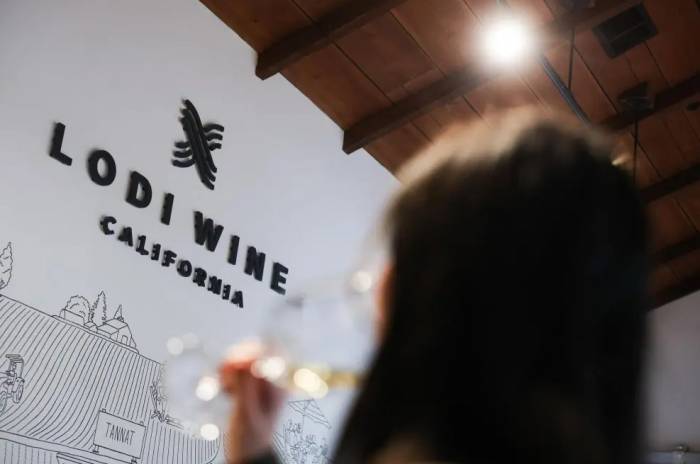Lodi Vineyards Lose Nearly 25 Percent of Grape Production as California Faces Lowest Yields in 20 Years
Rising costs, falling demand, and cheap imports force generational growers to abandon fields and consider switching to almonds.
2025-10-21

In Lodi, California, a region known for its historic vineyards and wine production, grape growers are facing a crisis that is forcing many to abandon their fields. For generations, families in Lodi have supplied grapes to some of the state’s most recognized wineries. But rising costs, falling demand, and increased competition from imported wines have made it difficult for many to continue.
Randy Baranek, a fourth-generation farmer in Lodi, said that over the past two years, thousands of acres of vineyards have been removed. This represents nearly a quarter of Lodi’s total grape production. Baranek explained that he has never seen conditions this bad. According to his calculations, many growers are now operating at a loss. An acre of vineyard typically produces between eight and ten tons of grapes, which can be sold for no more than $3,000. However, the cost to farm that same acre ranges from $3,000 to $4,500.
Walking through an abandoned Chardonnay vineyard overrun with weeds and rodent traps, Baranek pointed out clusters of grapes left to rot on the vines. With no buyers for their product, many farmers are not only giving up on new harvests but also lack the resources to clear their land. Removing old vines can cost thousands of dollars per acre due to California’s strict environmental regulations.
Abandoned vineyards have become a common sight in Lodi, which is famous for its old Zinfandel vines and grows about 130 different grape varieties. The decline in grape production is not limited to Lodi. Across California, grape yields have dropped steadily and reached their lowest point in two decades in 2024. That year, only 2.9 million tons were harvested statewide, according to Stuart Spencer, executive director of the Lodi Winegrape Commission. He expects another reduction of 400,000 tons this year.
Spencer attributes the crisis to both supply and demand factors. After three decades of growth, U.S. wine consumption has declined over the past three years. Americans are drinking less alcohol overall and are feeling the effects of inflation on their spending habits.
On the supply side, Spencer noted that large California wineries are increasingly choosing to import cheap bulk wine rather than buy local grapes. This trend is supported by a federal program that offers tax incentives to wine importers. In addition, European producers benefit from government subsidies that lower their costs even further, putting California growers at a disadvantage.
Matt Manna of Manna Ranch said this has been his most difficult year in two decades. Many growers are considering switching crops as a way to survive. Almonds are one alternative because they require less labor and have higher demand. However, replanting a vineyard with almonds or another crop can cost tens of thousands of dollars per acre.
Replacing vineyards with almond orchards could also hurt the local economy because grape growing employs more workers than almond farming, which is largely automated. “Everyone is very worried,” said one farmworker who has spent ten years tending Manna’s vines.
Kevin Phillips comes from another multi-generational farming family in Lodi and recently decided to convert one of his vineyards into an almond orchard. Phillips said he had access to land and water—both essential for almonds—and found that planting almonds was much cheaper than maintaining a vineyard. Almonds also require less labor and sell more easily than grapes.
“With grapes you have to build relationships with wineries and hope everything works out,” Phillips said. “With almonds there’s always demand—you don’t need to call anyone.” He admitted that making the switch was bittersweet: “It’s much easier now,” he said, “but it bothers me because I’m a wine guy.”
The changes underway in Lodi reflect broader challenges facing California’s wine industry as it adapts to shifting consumer preferences and global competition. For many families who have grown grapes for generations, these decisions are not easy but may be necessary for survival in today’s market conditions.
Founded in 2007, Vinetur® is a registered trademark of VGSC S.L. with a long history in the wine industry.
VGSC, S.L. with VAT number B70255591 is a spanish company legally registered in the Commercial Register of the city of Santiago de Compostela, with registration number: Bulletin 181, Reference 356049 in Volume 13, Page 107, Section 6, Sheet 45028, Entry 2.
Email: [email protected]
Headquarters and offices located in Vilagarcia de Arousa, Spain.